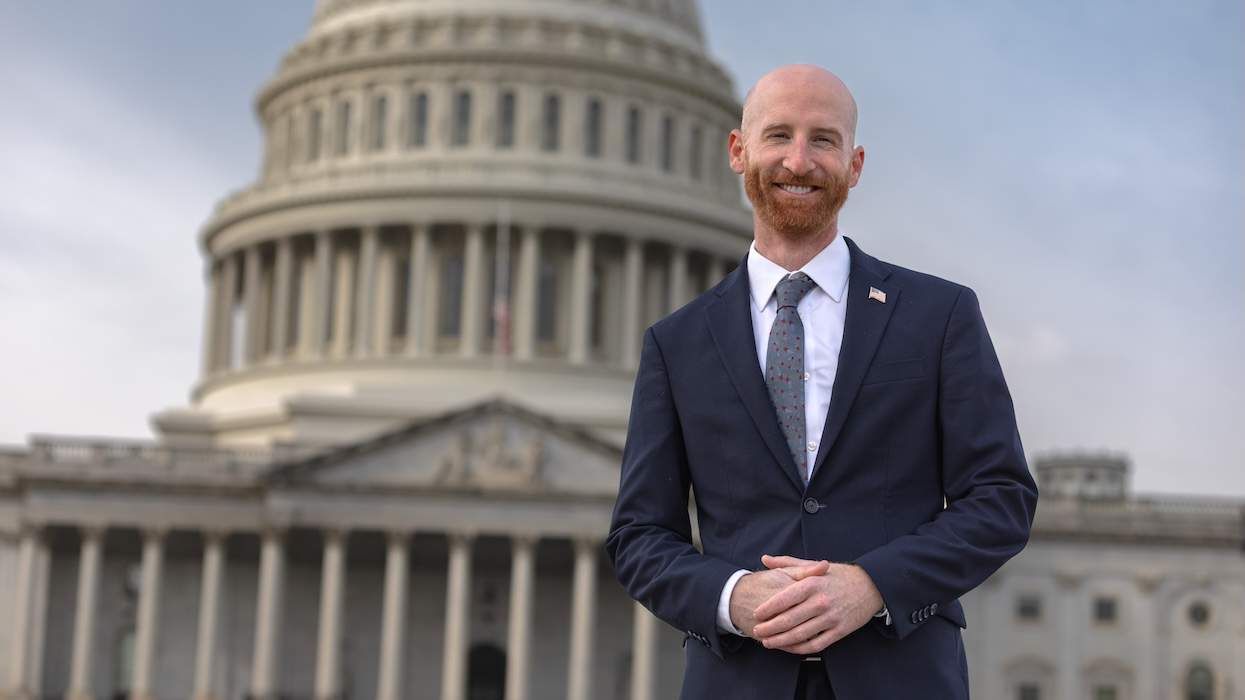When it comes to gays and money, conventional wisdom holds that LGBTs have a very different relationship with their finances relative to their heterosexual peers, and new data seem to bear this out. Two recent studies shed light on the finances of LGBT families, and cast them in sharp contrast to the economic reality felt by their non-queer counterparts.
A January 2014 study titled "LoveFamilyMoney," commissioned by the German financial services firm Allianz, indicates that in many ways, same-sex couples seem to be on better financial footing than heterosexuals. On average, same-sex couples without children had more retirement savings ($310,700 versus $251,100) and carried less non-mortgage debt ($20,670 versus $32,960) than "traditional" families, defined as adults ages 35 to 65 in opposite-sex marriages, with at least one child under 21 living at home, and no stepchildren, adult children, or other people in the household.
Same-sex couples without kids were also more likely to think of themselves as "wealthy" or "comfortable" (60%) than "traditional" families (52%) and far more than those in other "modern" family situations (40%), such as single-parent households or "boomerang" families, where an adult child comes back to the nest after living on his or her own.
Despite relative economic success and financial confidence, only 49% of LGBTs in a 2014 survey by Wells Fargo reported that they would feel comfortable walking into a bank and having an honest conversation about their finances. In the Allianz study, 48% of LGBTs said they use a financial professional or have used one in the past, compared with 53% of "traditional" families.
Aaron Baldwin, an LGBT financial adviser for a Fortune 100 financial services firm, believes such hesitation is to be expected. As he notes, "Financial planning is normally triggered by a significant life event -- marriage, the birth of a child, the purchase of a home, or the death of a close family member or friend." And while death is universal, marriage, children, and homeownership each present special challenges that have historically kept them (and the need for financial planning) beyond the reach of many LGBTs.
Children very rarely come as a surprise for same-sex couples: Adoption, sperm donation, in vitro fertilization, a surrogate womb -- each can represent a significant investment of time and money and require extensive planning and forethought. Heterosexuals, on the other hand, have to expend effort not to have children.
Additionally, buying a home becomes a risky investment without the certainty that your partner won't be kicked out after you're gone. "Traditionally, we've lived in a world that didn't honor our relationships," says Baldwin. "Thus, the financial-planning process was legally complex and expensive to execute."
Historically denied the institution of marriage, LGBTs are enthusiastically embracing it. According to the Wells Fargo study, 61% of those surveyed want to be married either now or sometime in the future, and a whopping 85% said that marriage and family are becoming the "new normal."
Love and commitment are clearly important considerations when getting married. However, just over half of LGBTs cited it as the most important factor (versus 80% in the national comparison group). In the Wells Fargo study, 36% of LGBTs cited financial and legal rights as reasons to get married -- the top three rights and benefits were health care decision making (61%), insurance and health care coverage (58%), and inheritance (56%). Same-sex couples also show a strong tendency to maintain separate finances. In the Allianz survey, four out of five couples in "traditional" families fully combined their finances compared with just over half of gays and lesbians.
That reluctance may be attributable to uncertainty. Even in a post-DOMA world, a large majority of LGBTs (83%) don't fully understand how federal and state laws apply, including two-thirds (67%) of those in legal same-sex marriages, according to the Wells Fargo study.
The impact of the Windsor ruling, in which the U.S. Supreme Court dismantled the Defense of Marriage Act, "is still being heavily discussed by many within the LGBT financial-planning arena, as DOMA leveled only the federal side of the planning equation," says Baldwin. "However many states still don't recognize same-sex marriage, and therefore they exclude those associated state marriage benefits."




































































Charlie Kirk DID say stoning gay people was the 'perfect law' — and these other heinous quotes